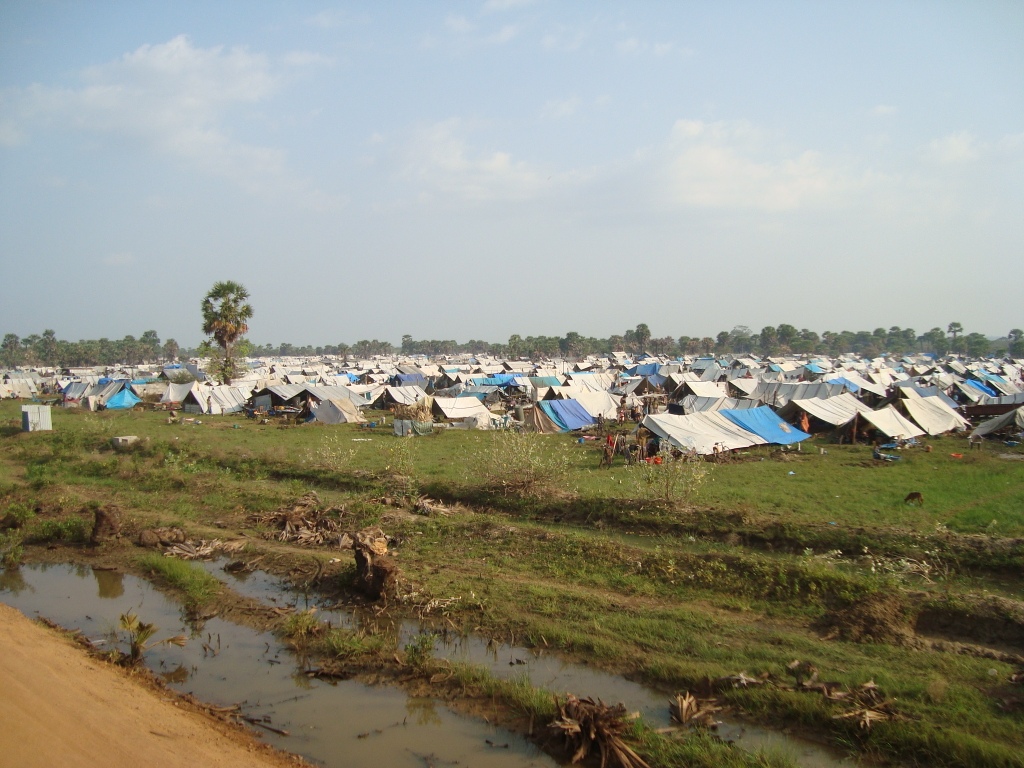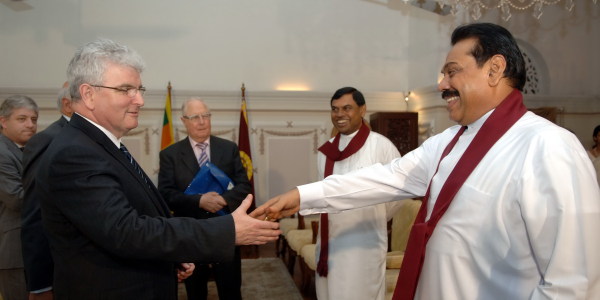A Brief Colonial History Of Ceylon(SriLanka)
Sri Lanka: One Island Two Nations
A Brief Colonial History Of Ceylon(SriLanka)
Sri Lanka: One Island Two Nations
(Full Story)
Search This Blog
Back to 500BC.
==========================
Thiranjala Weerasinghe sj.- One Island Two Nations
?????????????????????????????????????????????????Friday, May 6, 2022
13 years today - Deaths from starvation add to crisis
05 May 2022
Marking 13 years since the Sri Lankan military onslaught that massacred tens of thousands of Tamils, we revisit the final days leading up to the 18th of May 2009 – a date remembered around the world as ‘Tamil Genocide Day’.
After providing an initial death toll of 40,000, the UN found evidence suggesting that 70,000 were killed. Local census records indicate that at least 146,679 people are unaccounted for and presumed to have been killed. By examining different sources, including the United Nations, census figures and World Bank data, the International Truth and Justice Project (ITJP) found that the highest estimate of those killed during that final phase could be as large as 169,796.
See more at www.RememberMay2009.com, a collaborative project launched last year, between the Adayaalam Centre for Policy Research, Tamil Guardian and 47 Roots.
5th May 2009
Deaths from starvation add to crisis

Photograph: Inside the final conflict zone, pictured on May 5th 2009.
As the Sri Lankan military continued its shelling of the No Fire Zone, the LTTE called on the international community to facilitate the delivery of urgent humanitarian aid.
Extracts from their press release follow:
Faced with imminent deaths by starvation directly attributable to the Sri Lankan regime’s deliberate denial of food and humanitarian assistance to the Tamil people, the Tamil Diaspora has initiated measures to deliver humanitarian aid direct to the Tamil people in the Vanni/Mullaitivu region. The LTTE calls on the international community to support these actions to deliver humanitarian aid.
We draw attention to the nine deaths by starvation in the last few days and the real fear that the death toll could rise exponentially in the coming days.
The situation of the Tamil people who are being subject to shelling and bombings has been made much worse by the deliberate withholding of food and medicine. The UN and the rest of the International Community has a moral obligation to support this initiative by the Tamil Diaspora.

Photograph: People queue for food inside the final conflict zone, pictured May 5th 2009.
The Tamil Rehabilitation Organisation reported that of the estimated 2500MT of food that was needed per month, only 60MT was allowed through by the government for the whole of April.
It went on to add,
"Dead bodies are being taken by TRO volunteers for burial or cremation. Dead bodies have to be collected from shelters and bunkers. When dead bodies are brought to the hospitals or when the wounded people died in the hospital as the treatment failed they also have to be picked up.
.jpg)
A State Department report quoted sources as stating “various sections of Mullivaikkal were subject to air attack, artillery fire and cluster bombs”.
It added, “a source in the NFZ reported that there were no antibiotics available to treat illnesses”.
Prof Francis Boyle writes that "since the outset of this latest crisis in January, the GOSL has exterminated about 7000 Tamils in Vanni, certainly a "substantial part" of the Tamil population in Vanni and Sri Lanka.”
“If not stopped now, the GOSL's toll of genocide against the Tamils could far exceed the recent horrors of Srebrenica."
"A generation ago the world turned away from the Nazi genocide against the Jews--and lived to regret it. Humanity is at a similar crossroads today.”
British MPs conclude trip to Sri Lanka

A delegation of British MPs conclude their visit to Sri Lanka, with a press conference that slams the LTTE and calls on Sri Lanka to “use maximum restraint in their ongoing operations”.
"The LTTE has ignored repeated calls for the release of these civilians," said Des Browne. "We welcome the Government's agreement to allow the UN to visit the conflict zone to assess the humanitarian needs of the people there and to plan the evacuation of the remaining civilians... We spoke to a number of people in the camps who expressed their genuine relief at having escaped the LTTE and reached a place of safety. It is clear that IDPs in camps are much better off than their friends and relatives who remain in the conflict zone."
"The lack of independent reporting from the conflict zone is oxygen to LTTE propaganda and generates unhelpful speculation," said John Bercow.
Army advances into No Fire Zone
Wikileaks cables reveal “elements of the 53 Division” have entered the No Fire Zone. It adds “53 Division is advancing south on an axis west of the A35 road and east of the Nanthi Kadal Lagoon, while 58 Division is moving south on an axis east of the A35 and west of the coast.”
4th May 2009

The bombing continues
A US State Department report noted a source inside the No Fire Zone as stating the Sri Lankan military was “engaged in daily shelling and bombing of the NFZ, killing an estimated minimum of 100 people per day”.
Several attacks on Mullivaikkal Hospital led to patients not being able to receive surgery or any other forms of treatment, the State Department report added.


Photographs: Above, civilians shelter from Sri Lankan military attacks pictured on May 4th 2009.
Hundreds of Tamils arrested
Meanwhile the Sri Lankan military continued its roundup of Tamils across the island. In Amparai 160 Tamils were arrested by Special Task Force (STF) commandos and taken into police custody. In Colombo the military arrested 6 further Tamils, whilst 76 Tamils held in detention centres in the Jaffna peninsula were taken by the military to the Thellippazhai ‘rehabilitation centre’.
TAG calls for ICC investigation
Tamils Against Genocide (TAG) wrote to then-Chief Prosecutor at the International Criminal Court (ICC) Luis Moreno-Ocampo, urging him to investigate senior Sri Lankan military and political officials for war crimes, crimes against humanity and genocide.
Bruce Fein, counsel for TAG, wrote
I am writing to urge you to open investigations under the Rome Statute of Sri Lankan President Mahinda Rajapaksa, Sri Lankan Defense Secretary Gotabaya Rajapaksa, Sri Lankan presidential adviser and Member of Parliament, Basil Rajapaksa, and Sri Lankan Army Commander Sarath Fonseka.
The quartet should be investigated for war crimes, crimes against humanity, and genocide of Sri Lankan civilian Tamils unconnected with the conflict between the government and the LTTE.
The Government of Sri Lanka is unwilling to investigate itself.

Photograph supplied on 4th May 2009 inside Menik Farm, where hundreds of thousands of Tamils were to be detained by the Sri Lankan military.
3rd May 2009

